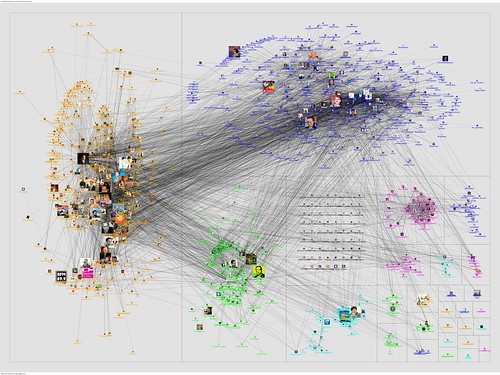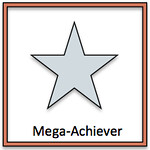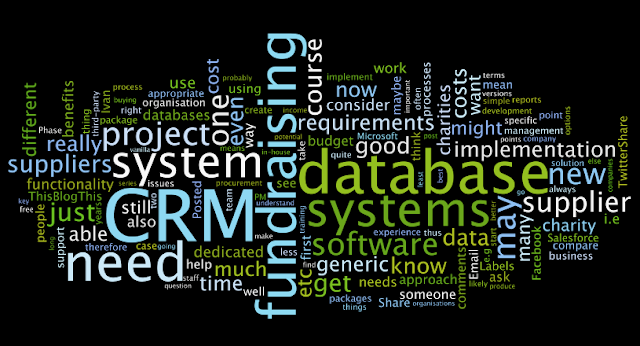I have this little dream that a charity phones me up one day and says to me, Ivan, we have some spare money we want to invest in our CRM implementation - where do you suggest we spend it? Unfortunately, before I can say, "Me! Me!", I of course wake up.
But it has made me think: if someone was to ask me, if we wanted to spend more money somewhere on our CRM project, then where should we spend it - and assuming that I am wearing my incredibly self-righteous hat so that I don't of course say me - then what would my answer be? I'm also assuming for the purpose of this hypothesis that they already have an existing budget which is "satisfactory" and certainly enough so that the project could at least be completed "satisfactorily". Thus, any extra money would be a complete bonus to add real extra value.
So, what would I do with such a windfall?
What I wouldn't spend it on
Interestingly, when I challenged myself to answer this, I found it harder than I thought I would. So let me start off by saying what I wouldn't spend it on.
- Extra software licenses. I don't think you need more licenses at the start of an implementation and, ironically, if you did buy more licenses then it would probably mean the need for an even larger budget to cope with the extra demands.
- Better Hardware. I don't think more powerful hardware will add as much extra value as other places.
- Data cleaning. Again, important, but not as important as other points.
- More training. More controversial perhaps, but, assuming we would be spending it on more training from the database supplier, I think extra training could be delivered in-house by the charity's own trained staff with more time... see below.
- Additional project management. As I am often a PM, this might be surprising, but there is a limit to how much project management a project needs and anything above that isn't going to provide the same benefits as other things.
- Software customisation. I've written before about how I believe we should keep a new CRM system as "vanilla" as possible, so I don't think spending money on more customisation up-front is the best approach.
- Integration. I was close to including this in the list below in my short-list for consideration. There are great benefits from integrating a new database with, say, another database in your organisation, or your website if it hasn't been linked before, or with an email marketing system. And the only reason I am not suggesting the money should be spent on such budgets in this scenario is because I think, if it wasn't already in scope then it would make the project larger and harder to implement in Phase 1. But if I had more money which I could spend later then, yes, this would be a prime budget to use it on.
My short list:
- Consultancy from the Database Supplier - post-live. (I can just hear the CRM suppliers cheering whilst reading this!) One of the key things about implementing a new system is understanding what it can really do for your charity which will provide real, solid benefits, aligning it to your processes, and enabling your staff to understand what the new database can truly manage. And for these reasons, I would consider buying more post-live consultancy time from the supplier. Not more time during the requirements gathering stage etc, but after we go-live when we actually get down to using the darn thing. That's when I think we can get most benefit from such consultancy.
- More resources (people) during the implementation. i.e. most likely, freeing up the time of the existing, key staff who could be involved on the project, but because they often have to consider their Business As Usual, they too frequently cannot dedicate the time to the project which ideally they should. So getting in more resources to do their BAU so they can concentrate their efforts on the project will pay dividends in spades. It will mean they get more involved, earlier, with more understanding of the new system and the charity's systems/processes, will become stronger advocates and supporters of the database and will mean that the whole thing will stand a much better chance of going live successfully.
- Creating reports ready for go-live. This is sadly one of those areas which is often under-budgeted for (and under-scoped) but can provide so much benefit: being able to implement reports as soon as you go-live - being able to uncover and streamline benefits from data and information. Indeed, the difference a new system can make and through reporting and analysis is an immense benefit to have.
So if I am offered my extra budget then, weighing up the above options, the area which I believe would give the most extra benefit and value would be spending it on "more resource during the implementation"; or as I said above, probably back-filling existing staff's roles so that they could be freed up to do more work on the project itself.
I think that this would mean so much more to a charity and would not only help the initial implementation, but would provide a far stronger base for future development and on-going use of the new system.
Now over to you...
What would you do? What would spend it on if someone gave you an extra wad of cash to invest in a new database implementation? Answers in the Comments below please!








